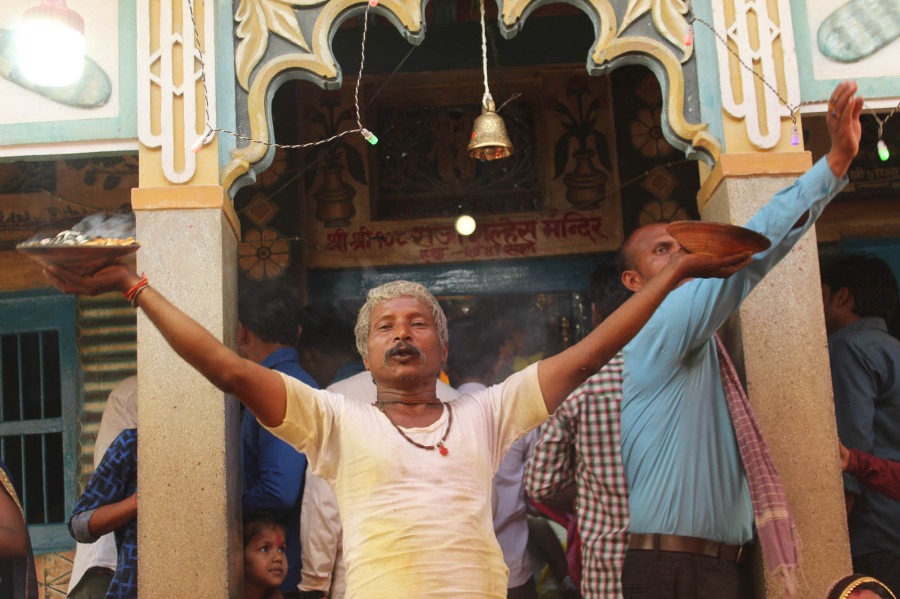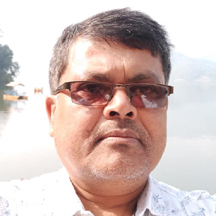National
Erstwhile dacoits from the Dusadh community turn over a new leaf
The people of Dusadh community in Dhanusa district of southern Nepal, just 15 years ago, were known for their infamous profession of thievery and robbery. But now, the Dusadhs from Akauda and Jhijha in the district have turned away from their earlier ways and have opted to receive an education and work white collar jobs to sustain their livelihoods.
Shyam Sundar Shashi
The people of Dusadh community in Dhanusa district of southern Nepal, just 15 years ago, were known for their infamous profession of thievery and robbery. This “profession” enabled them to feed their families.
But now, the Dusadhs from Akauda and Jhijha in the district have turned away from their earlier ways and have opted to receive an education and work white collar jobs to sustain their livelihoods.
Although notorious for organising robberies by digging tunnels into the homes of unsuspecting villagers to steal rice, lentils, utensils, clothes, ornaments among other things, the Dusadhs were also known for upholding their religious beliefs, work ethics and code of conduct. Most of the thievery that the Dusadh community carried out was at the homes of wealthy people; they respected women and were loyal to the then Panchayat regime.
The profession of the community came to light following the first and second national censuses when some of the Dusadhs from the Paswan community of Jhijha and Akauda declared thievery and robbery as their profession, a fact which was confirmed by former minister for science, technology and environment Bishwendra Paswan.
“Some Paswans from the Dusadh community of Jhijha and Akauda declared their professions as thievery and robbery. But the enumerators put “dacoit” as a profession for every Dusadh in the country and brought shame to the whole community,” said Paswan. “We protested against the inaccurate census later and amended it.”
The terror of Akauda dacoits surfaced throughout the plains of Nepal—from Biratnagar to Nepalgunj—and bordering parts of India reaching as far as Patna. The professional dacoits were also used as contract killers by various people from Nepal and India.
Meanwhile, there are plenty of instances when the police administration under the Panchayat regime used the Dusadhs to intimidate people supporting multi-party democracy. The government authorities are also known to have supplied them with arms and ammunition for the government’s vested interests.
Rajeshow Nepali, a senior journalist, recalls the Panchayat regime using dacoits from Jhijha to assassinate Nepali Congress leaders Saroj Prasad Koirala, who was leading the democratic movement from the bordering town of Madhuwani.
However, once the dacoits started working for the Panchayat, it forbade them from carrying out loot within the country. The community was then used as security forces to man their villages from outside threats.
“Our Sardar [chief] would have access to meetings of the then Superintendent of Police, DSP and Zonal chiefs after offering bribes every month,” said Ganga Paswan, a local.
According to those who were dacoits, the profession was not like that of Robin Hood or Amitabh Bachchan-Dharmendra duo from Sholay. The community often had to bear the news of its people being murdered while on the job. Jogi paswan, a local, said a couple of people from the community would lose their lives every year and over 20 people were murdered for being dacoits.
During mid-1980s, two youths from Akauda were murdered and as many were captured and sent to prison with the help of Indian police in the bordering village of Itharwa. In retaliation, the Dusadhs from Akauda beheaded four Indian nationals and threw their bodies outside the Harlakhi-based police station.
Recalling the incident, Parmeshwor Yadav, chief of the then Village Panchayat and the incumbent mayor of Nagarain Municipality, said, “The incident prompted fear in the village for over a year. We were living in constant fear as there were rumours of Nepal Police conducting a raid and Indian police preparing to attack our village searching for dacoits.”
Despite all the history, the Dusadh community in Akauda turned a new leaf after the political change of 1990, said 56-year-old Ganga Paswan. “Now the community prioritises education and the younger generation attends schools. Some also hold government jobs, including with the police and foreign employment,” he said.
Of the 1,500-strong Paswan community, over 50 youths are currently working abroad, around 30 of them are in the police force while some are working as teachers, surveyors and the rest are involved in farming and other professions.
Prem Lal Paswan, a teacher from the community, said the youths of this generation are attracted to education and their first priority after getting an education is to be join the police service. This has brought about positive changes in the community and transformed their lifestyle and uplifted their social and economic status, said Premlal.
“The changes that the community has undergone are incredible. Earlier there was no certainty in their lives, now everyone lives in peace and harmony,” Mayor Yadav remarked.




 9.7°C Kathmandu
9.7°C Kathmandu














